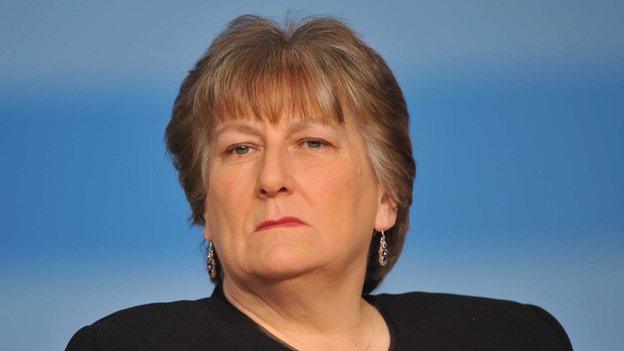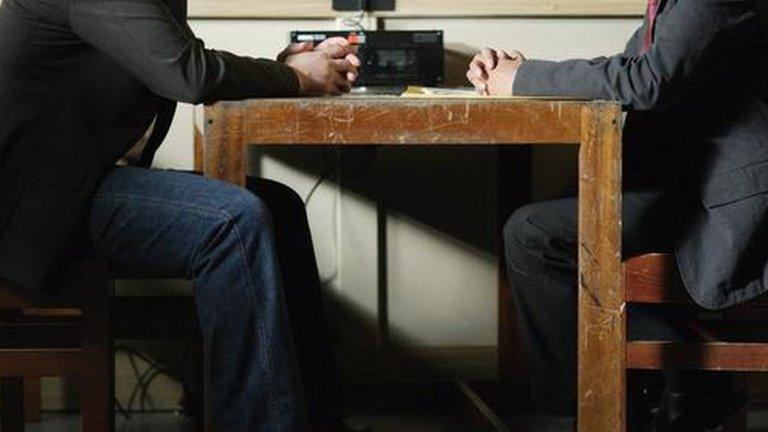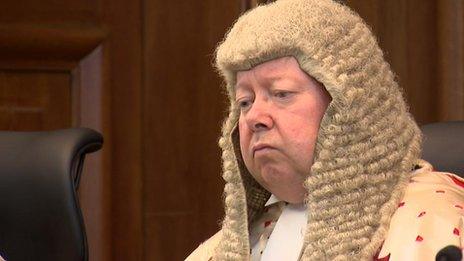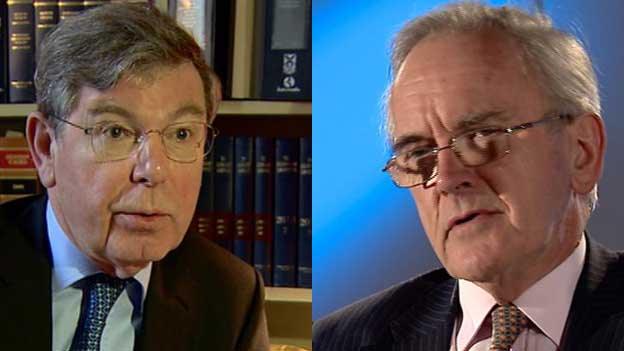Quiet surrender over corroboration
- Published

Justice Secretary Kenny MacAskill was 'decidedly consensual, if not contrite' in his announcement that the next stage of the bill to scrap corroboration in Scottish criminal cases would be delayed
In the past, there had been sound and fury. There had been finger jabbing. There had been angry accusations - and indignant counter claims. There had been one almighty row.
But, in the event, the contentious proposal to abandon the requirement for corroboration in Scottish criminal cases was quietly postponed for a year without fuss and with elaborate politeness on all sides.
To recap, Justice Secretary Kenny MacAskill advanced plans to abandon required corroboration as part of a wider criminal justice bill. Facing claims that this might lead to mistrials and mistaken convictions, Mr MacAskill announced that a review group under Lord Bonomy would seek safeguards to strengthen procedure.
But in the meantime, while Lord Bonomy considered reforms, the bill was to continue its Holyrood progress. The legislation was to pass. Opposition leaders - who had read their Lewis Carroll - thought this was sentence first, verdict later.
They protested long and loud, urging the minister to defer the bill until Bonomy reported. This Mr MacAskill resolutely declined to do, culminating in an exceptionally angry series of exchanges when the bill was debated in the chamber at stage one.
All passion spent in what was, by common consideration, a bad day for parliament - and, arguably, for the minister - we arrive at today's susurrating surrender.
'Fundamentally weak'
Quietly and with zero bombast, the justice secretary rose to reply to a question from Annabel Goldie of the Conservatives. He announced that stage two of the bill would not be considered until after Lord Bonomy has reported.
That report is not expected until April next year - which entails a delay of a year or more in the legislation. Given that required corroboration has been a principle of Scots Law for centuries, that does not seem to opposition politicians - and now to the government - to be an unwarranted delay.

Critics have said removing the need for corroboration in Scots Law could lead to mistaken convictions
So what happened? Firstly, the Scottish government case appeared to many to be fundamentally weak. If the bill required a review of safeguards before it was even implemented, then it was, arguably, not in a fit state to proceed to legislation.
Secondly, support for Mr MacAskill was limited among his senior colleagues. They back the principle of removing required corroboration on the grounds that it should enable more cases of rape and domestic abuse to proceed to trial.
They back his stewardship of the justice department - not least because, post-Megrahi, post-Police Scotland, it has been a particularly difficult brief to sustain. They acknowledge his talent.
But they would not, ultimately, go to the wall over driving through the bill ahead of Bonomy's report. It was not viewed as politically astute. And, in these referendum times, political deftness is crucially important.
Political calculation
In the chamber, Annabel Goldie offered a measured response, welcoming the move. She speculated on the source of the new-found happiness over the issue. Was it the spring sunshine? Was it the Easter recess? Myself, I would look to political calculation.

Conservative MSP Annabel Goldie welcomed Mr MacAskill's move on corroboration and called on him to scrap the automatic early release of prisoners
Certainly, Mr MacAskill was decidedly consensual, if not contrite. For example, Ms Goldie said she wanted to "tempt him further down the path of righteousness".
She urged the minister to go further, to extend the moves to limit "the nonsense of automatic early release" of prisoners. So affected was Mr MacAskill by the sunshine atmosphere that he disdained to name the political party which originally introduced said "nonsense". (Hint: Annabel Goldie used to lead them.)
Alison MacInnes for the Liberal Democrats and Elaine Murray for Labour offered thanks for the about-turn. Margaret Mitchell, for the Tories, said that Lord Bonomy's remit should now be extended to include the question of whether corroboration should be scrapped at all.
Mr MacAskill rekindled a little of his fire, noting that corroboration "had to go". In essence, his message to Margaret Mitchell was: "Don't push it". But, on the day, he was far too polite and genteel to say so.
- Published23 April 2014

- Published7 January 2014

- Published4 February 2014
